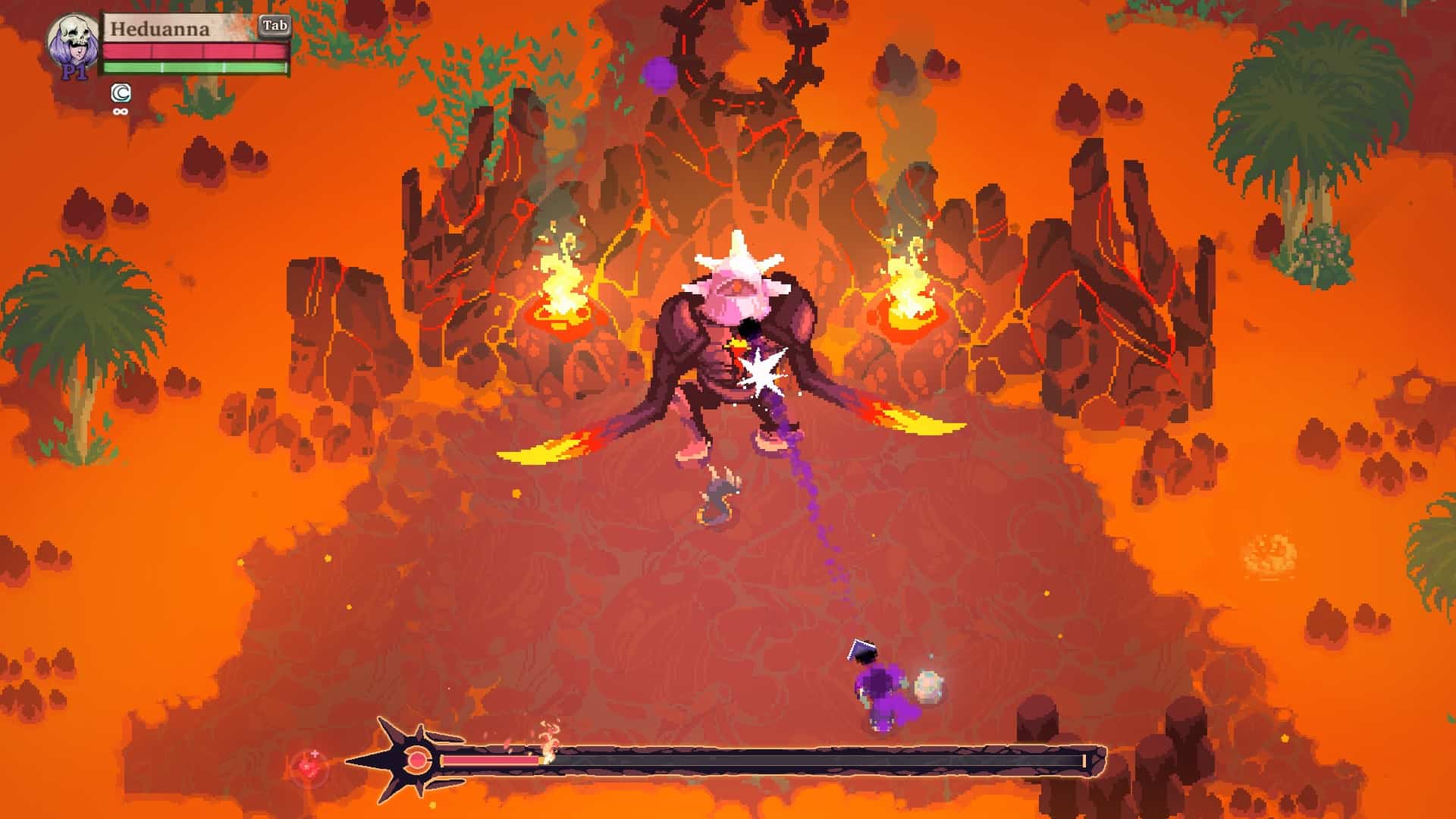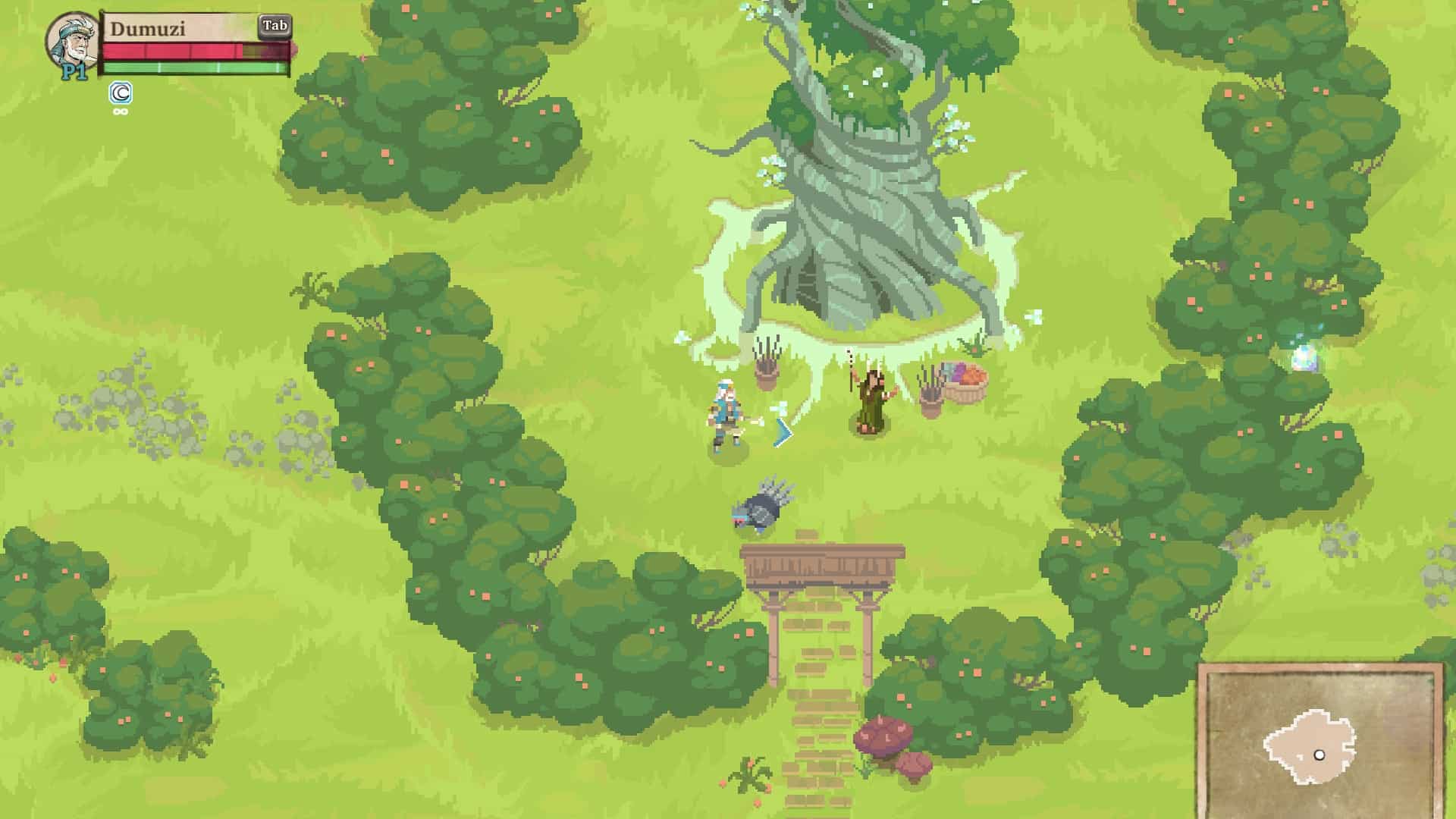Somewhere amongst the harsh, arid terrain, which buckles and cracks underneath the pressure of the traitorous Sun, her believers are weeping. She has left them to the mercy of chaos, deserted them in a realm where vicious sand scarabs unleash their sting, and haunted spirits threaten to swallow their faith. A beacon of hope emerges in the traveller who dares to find her – the beloved Goddess of the Moon. This is the effortless way that Moon Hunters, a mythology rich RPG that delves deep into ancient folklore and history enchants, bewitches, and mesmerises, and makes us question our very existence.
The ancient Mesopotamian city of Issaria feels anything but mythical when you first tread upon its nostalgic soil. Developers Kitfox Games cleverly adopt a 1-4 player gameplay style that allows players to choose a class of character that best speaks to their own personality, from the quick witted spellblade Dumuzi, to the powerful witch Kubele. Players are then invited to align themselves with a tribe – either the secretive wolf clan or the desert dwelling dust folk, after which they materialise in the Outskirts, a basic training area. The controls in Moon Hunters, which use a combination of WASD keys for movement and the mouse for special attacks, are simple and easy to grasp even for newcomers to the RPG genre, and the objective driven gameplay that tasks players with finding water, food or a place with more air immediately engages the attention. The shadowy terrain, littered with trees, caves and bushes which contain sometimes hidden opals (represented by the Greek letter Φ) serves as a beautiful canvas for rich exploration and reward, but the true highlight is interacting with NPCs. That’s when the real story begins.
When you reach the village, it’s difficult not to be impressed by the mellow yet exquisite artistry and the exotic soundtrack which function in perfect harmony. There are massive volumes of culture that are just begging to be discovered: elders gossiping, children eagerly anticipating the delicious festivities (moon cake seems loosely derived from Chinese cuisine), or villagers arguing the virtues of stew and soup – the trivial becomes the exceptional. By speaking with different people, you can influence their destiny, gain a certain kind of reputation, and even broaden your linguistic horizons (learning new words such as ‘keet’). Arguably the most significant of the three is your reputation, and how you earn it. This quality injects a fresh layer of intrigue into gameplay makes Moon Hunters a markedly different from the standard health, mana and stats centred RPG experience most players would expect. Moon Hunters is a game of true consequence; every single choice you make has impact and will not only shape your future interactions, but will give you traits which ultimately form your reputation. Choosing to observe, rather than steal a piglet for instance, could make the difference between someone who is perceived as patient or vengeful, and in this superbly detailed and procedurally generated world, there’s no shortage of opportunities to form such values.
A core theme of the Moon Hunters narrative is the dichotomy of old versus new, or tradition and change. This is hinted at when the dreamy, wistful cutscene of the Moon Feast unfolds, a pagan-like celebration of the Moon Goddess who the villagers worship. Inexplicably, she does not rise. Without their Goddess, the people are sent into complete chaos and entrust you to find and save her within three days. The journey ahead is spread out across a map with multiple destinations, some dangerous, some with the promise of strange artifacts, and some with edible foodstuffs which can be used to create recipes. Mountain ravines, forests, mangroves and lush jungles make up the beautifully pixelated topography of Issaria, where you’ll spend most of your time fending off an assortment of enemies that include beetles, monkeys, and fantastical tentacular critters. They tend to approach in hordes, and don’t come equipped with a variety of melee attacks, so while the combat is simple it can feel repetitive. At the same time, defeating enemies is highly satisfying and reinforcing because players earn opals, which they can then spend at the local merchant to purchase new abilities. Furthermore, once you die there is no automatic respawn. Instead, you awaken next to a crackling fireplace where you have the option of hunting, cooking, or stargazing just to name a few activities. Each activity boosts your core stats but also contributes to your reputation, and not always in a good way, so like the shadowy figures that approach your campsite from the darkness, Moon Hunters is always full of surprises.
When the Moon Goddess goes missing, a bright, blazing nemesis arises in the form of the Sun Cultists. Their beliefs are the complete antithesis of what the Moon Goddess represents, and at various stages throughout the game their representatives will ‘spit at your feet’ to demonstrate their utter hatred for your kind. Aside from being a riveting plot device, the clash of Sun and Moon creates a wider allegorical nexus to the religious wars that have occurred throughout the centuries, a controversial territory that games don’t always approach. There are even biblical allusions, such as when you encounter a woman in the forest who warns you not to steal her apples from the tree. It’s interesting to witness these kinds of legends, especially those that are forgotten, rejected, or buried under the weight of the years being re-explored in a game, especially from the top-down visual perspective used in Moon Hunters, which feels particularly reminiscent. Traditionally, parables, aphorisms, myths and legends are inscribed on walls, recorded in books or captured on film, but these avenues lack the branching possibilities and high level of agency and control on the final outcome that Moon Hunters offers.
By the third day, ravaging fires have swept across Issaria and transformed the once flourishing biomes into charred, desolate remains. Yet they still retain a shattered beauty, and the authentic background music, which is sometimes the soothing lullaby of a female voice and soft guitar, and sometimes a purely instrumental, atmospheric tune that lifts the spirit and readies you for the final crescendo. Your hero must engage in battle with the King of the Sun Cultists, the final test before the stellar throne in the night sky becomes yours. The boss might not feel especially difficult for a more experienced player, but then again, Moon Hunters is not really a game about winning or losing; it’s about the legacy we leave behind, and I have a feeling the legacy of this game will be pretty phenomenal indeed.

Moon Hunters is out now on Steam for $14.99 USD. Follow Kitfox Games on Twitter and stop by their Facebook page to pay respect to the Moon Goddess. For the latest game reviews, features, top ten countdowns and more, don’t forget to follow PopOptiq on Twitter.



